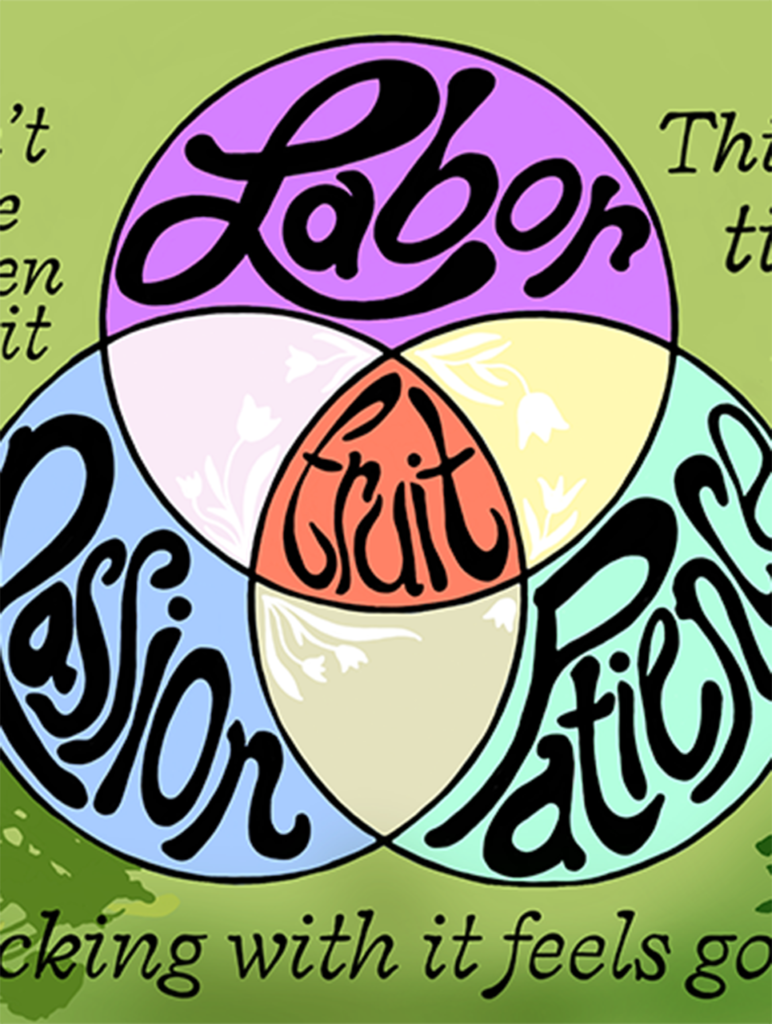Illustration by Max Gordon.
Money Matters
by Pamela J. Rich-Wheeler
The barriers small businesses face are many, no matter where they are located, and one of the biggest is lack of access to capital.
This is a particular problem for minorities and women who do not often have the luxury of wealth transfer as a source to start a business; a lack of “friends and family” money can mean that social entrepreneurs start out undercapitalized, and never recover. At the Business Center for Entrepreneurship & Social Enterprise (TBC), we have watched as individuals use their retirement savings, or max out high-interest credit cards, to start their businesses. It’s almost never a winning strategy, and it puts some of our most financially at-risk residents at even greater risk—even as they are trying to invest in their business, community and city.
These undercapitalized individuals also suffer from having an inadequate network of high-level connections and access to the networks that may lead to desirable contract opportunities—and other relationships—that will enrich their business.
It is imperative these barriers and risks be removed if we want our entire city to thrive, and investing in social entrepreneurs has even greater impact.
The social entrepreneur, similar to a business entrepreneur, builds strong and sustainable organizations, but operates with a dual purpose: generating income by selling a product or service in the community and marketplace while creating social, environmental and cultural value.
We must do more to support social entrepreneurs, particularly among people and communities who have not traditionally had access to capital or high-level networks for starting businesses.
At TBC, we have seen the good these entrepreneurs do in their communities. An example is TBC client Linda’s Vegetarian Village, owned by Linda and Leo Smith and located on the corner of Johnson Street and Germantown Avenue in Philadelphia.
The restaurant features a simple but varied selection of vegan delights. In addition to raising the consciousness of the community through the fare that they serve, each second Monday the restaurant offers Herbal Mondays, informational sessions that cover health-related topics from lowering blood pressure to understanding foods that prevent cancer, kidney disease and diabetes.
Linda’s Vegetarian Village is a change driver, applying practical, innovative and sustainable approaches to benefit society in general. We work with these change drivers on a daily basis to encourage more entrepreneurs to dedicate themselves to social innovation and transformation in various fields of enterprise development.They include emerging industries such as healthcare, manufacturing, food service, construction and technology.
While social entrepreneurs make a difference in every neighborhood, their contributions are particularly important in some of the communities we serve. Center City is awash in tax credits and connections, and some areas of the city also benefit from being designated as Keystone Opportunity Zones that offer tax breaks to businesses within them. But many, many neighborhoods are left with little or no support.
At TBC, we start with fundamentals, and we must all work to better position minority- and woman-owned companies to develop and vet their business concepts before they get started, continually developing more knowledge on accessing new capital, on marketing and on efficient operations. TBC offers courses that help individuals determine if their idea is feasible, write a sound business plan and determine a sound level of capitalization for their endeavor.
Institutions throughout the city must do a better job of educating emerging social entrepreneurs about financing alternatives. Money matters.
Peer-to-peer lending is a tool that connects individual investors with individuals seeking to borrow money. Another source of alternative capital is crowdfunding, such as KIVA ZIP, a pilot program that drives innovation in peer-to-peer lending. TBC serves as a trustee for KIVA ZIP in the city of Philadelphia. It carries zero percent interest to the borrower. A borrower begins the process by identifying seven affiliates that will invest online. After that happens, it is then opened up to the larger community to invest in the company. Investments with KIVA ZIP begin with amounts of $2,500 and extend up to $10,000. TBC offers one-on-one coaching so the individuals can fine-tune the plan and determine the best sources of financing.
TBC partners with the Commerce Department, banking institutions and other agencies to get clients contract-ready, grant-ready and fully capitalized with the right lending products as they move forward with their business plans.
Educating aspiring social entrepreneurs and offering financing alternatives is something we do every day at TBC as we help people grow healthy and sustainable businesses—but we can’t do it alone and hope to achieve the scale of impact we need.
Now, as America pulls itself out of the recession of the last eight years, and as Philadelphia’s star is rising, it’s time to make sure that the American dream is accessible to everyone.
Pamela J. Rich-Wheeler, MBA, is founder and executive director of the Business Center for Entrepreneurship & Social Enterprise, a nonprofit business support center in Northwest Philadelphia that can be found at thebizctr.com.








